I cried my last one for now.
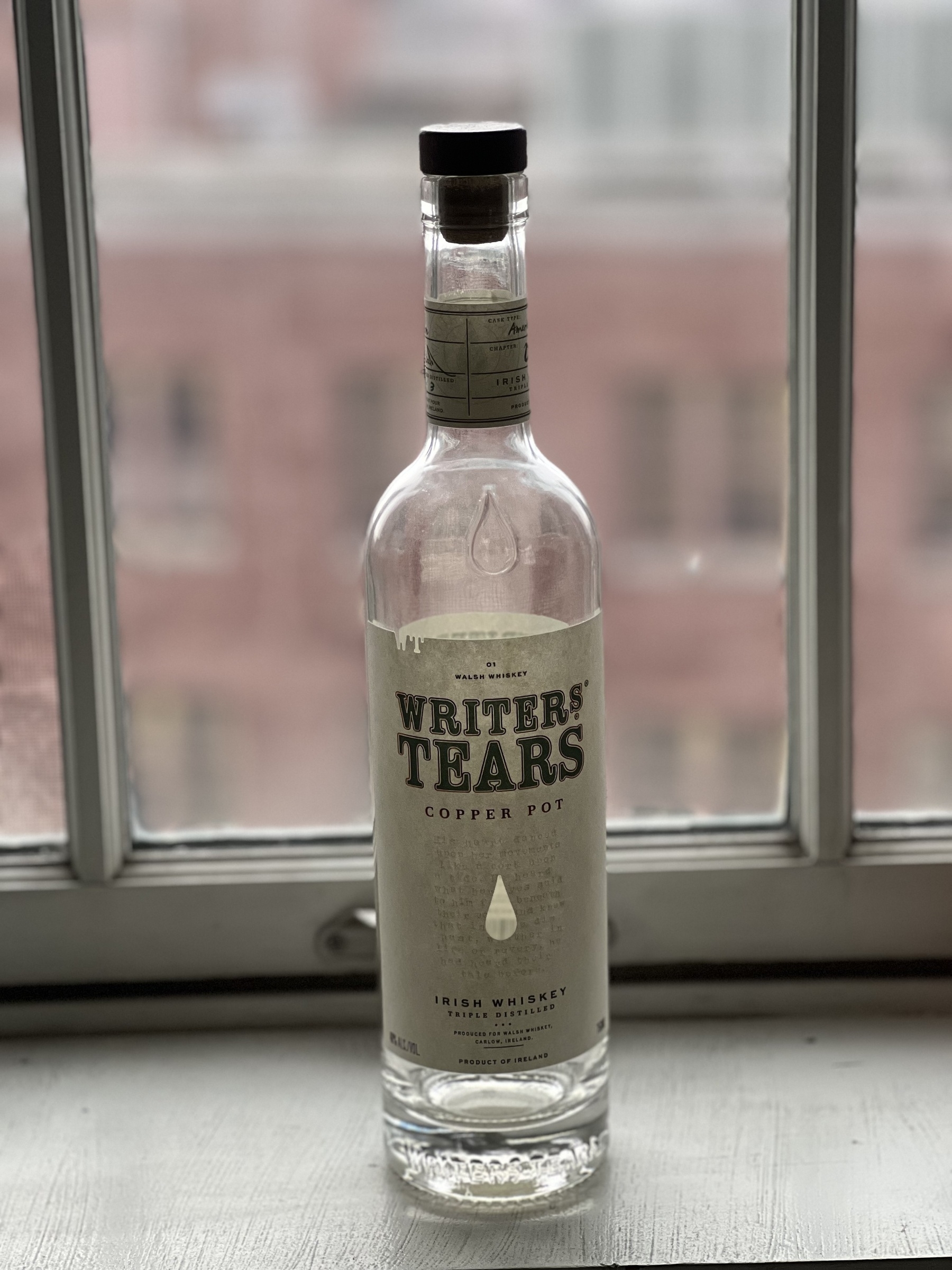
I cried my last one for now.

I had the deep pleasure of being interviewed about T’shuvah, my new book of poems, by Jaime Alejandro for his Arts Calling podcast. He asks really good questions. We talked about poetry and spirituality, about what it means to see yourself as part of a literary tradition, about the process of publishing, and more.
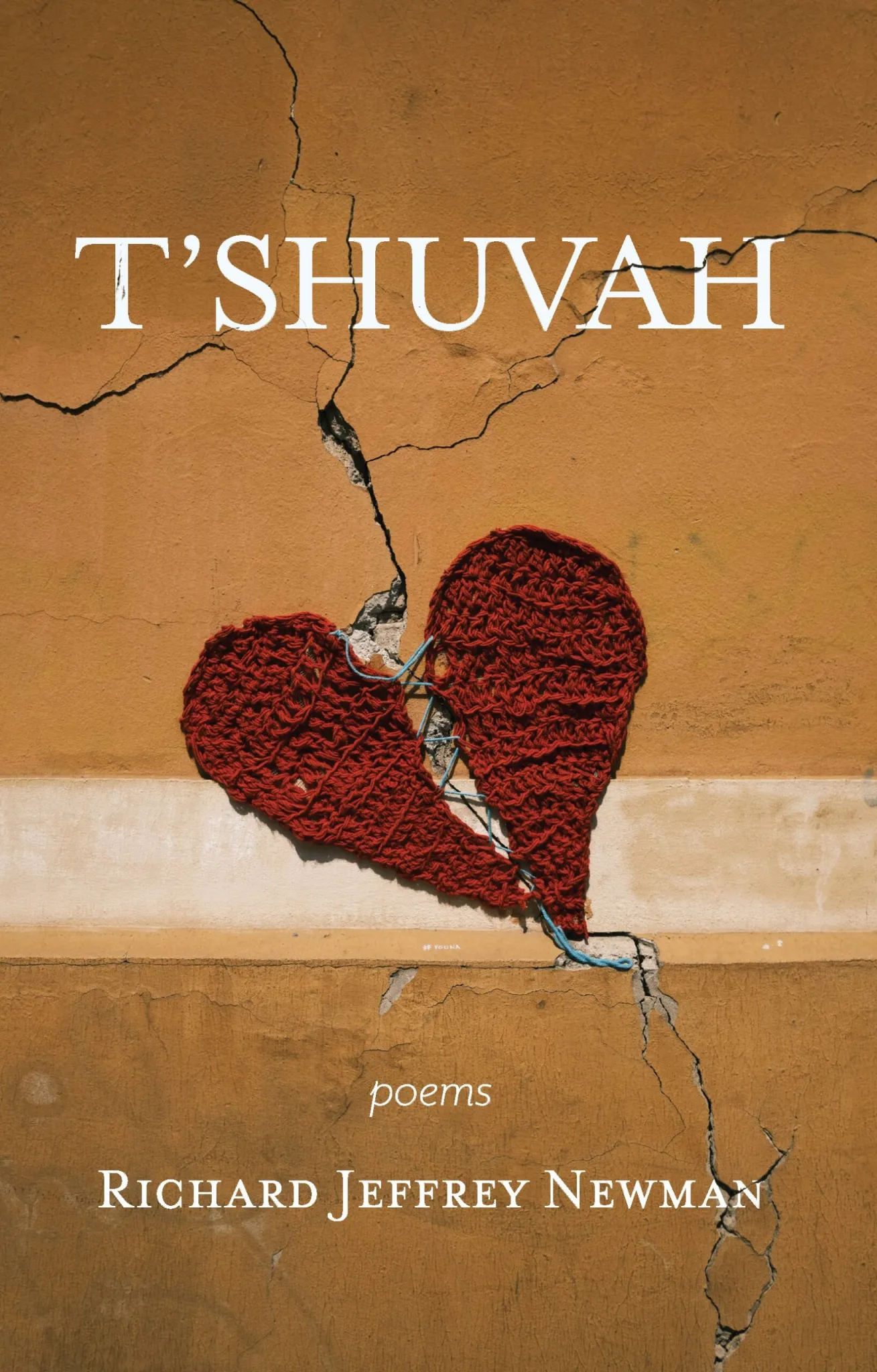
T’shuvah, my third book of poems, is now available for pre-order! The official release date is October 17, but if you order the book before then, you’ll also get a special gift: recordings of two of my own piano improvisations on the melody of Kol Ha’Olam Kulo, the English translation of which is the book’s epigraph: “All the world is a very narrow bridge, and the most important thing is not to be overwhelmed by fear."
This is me reading at the New York Poetry Festival from T’shuvah, my third book of poems, which will be out from Fernwood Press on October 17:
Keeping me company while I work.

Front view.

She’s happy I’m here.

I’m always interested to see where my translation are quoted.
From The Parasite of Translation, by Johannes Göransson:
If translating a poem is impossible according to the current definition of the poem – even though translations happen all the time – then perhaps the problem is not with translation, but with our idea of poetry. Perhaps we need a new way of thinking about the poem.
The hunt is on: I am, once again, an essayist in search of a conclusion.
So we recently had a water leak in our apartment. They came and stripped away the paint and this profile emerged. Wonder whom it could possibly be?
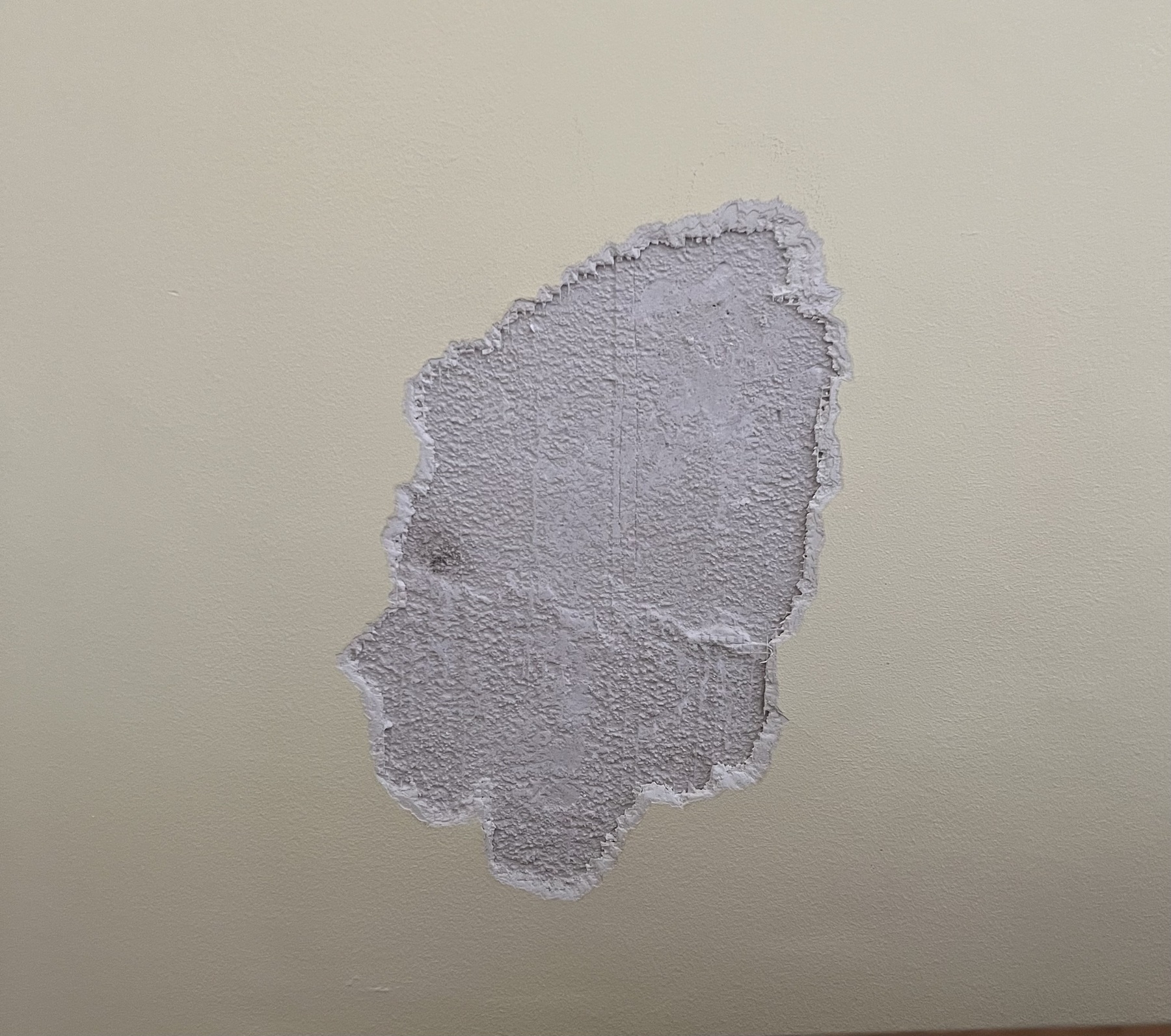
My Father’s Day gift from my son.

Me at work in my son’s room, because we had to have work done in the room I use as an office and I haven’t moved my stuff back in their yet.
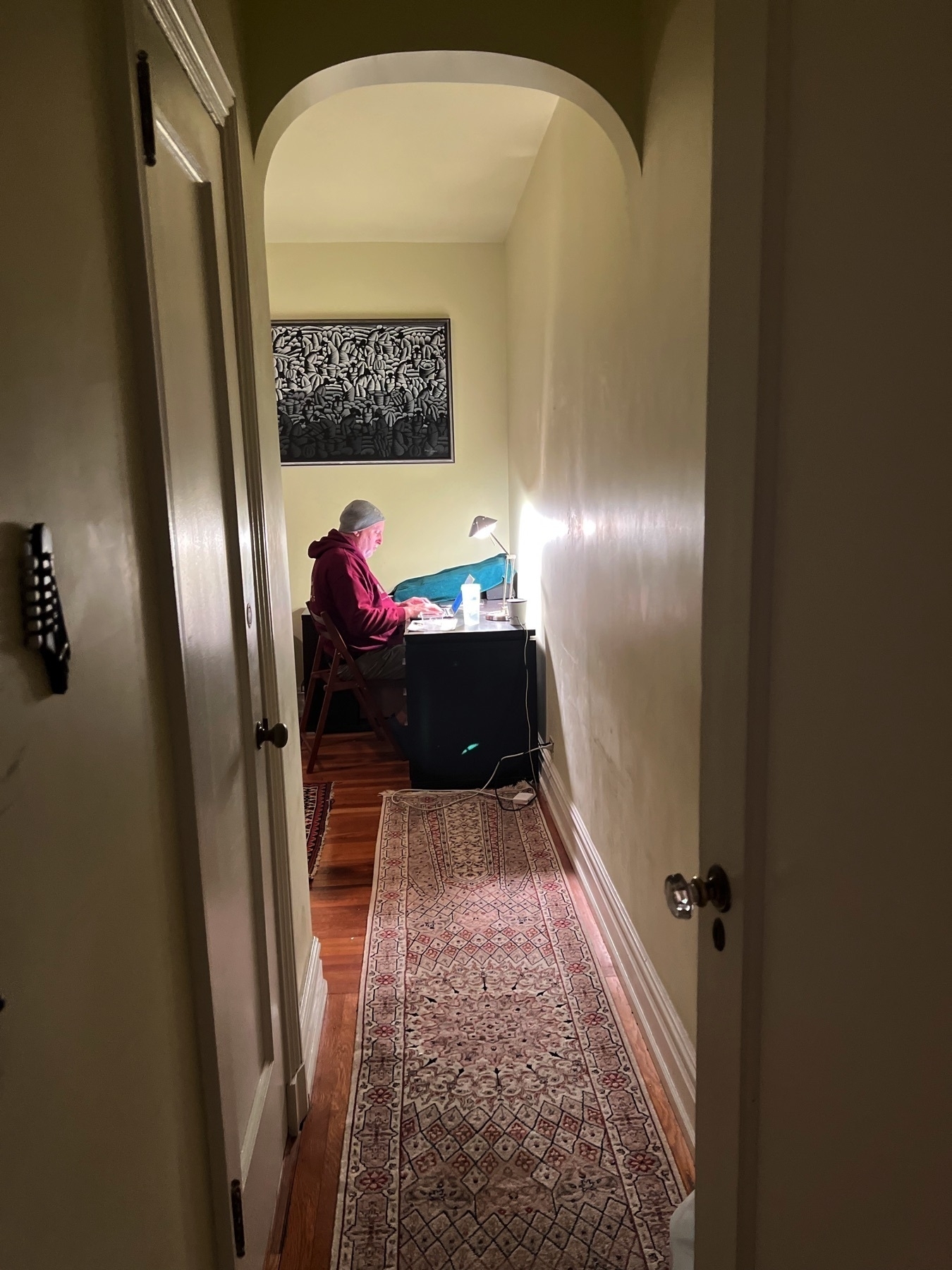
My grandparents had a country house where we spent summers when I was a kid. I remember my grandfather, and sometimes my stepfather, standing in the kitchen doorway, aiming a rifle to kill the woodchucks that lived in the far corner of the field. I think this is what’s left of it.

After 14 student deaths, North Carolina State confronts a national crisis
While I am unaware of student suicides or deaths from any other causes on my campus, the point this article makes about a student mental health crisis hits home hard for me, especially now that the semester is ending. Almost 30 students, more than one full section’s worth of a composition class, have dropped my classes this semester, overwhelmingly because of some situation in their lives that prevented them from being able, emotionally and/or psychologically, to focus on the work they need to do. The most difficult part from my point of view is how many did not come talk to me because they didn’t want to be “that student” who was constantly making excuses. I know the difference between “that student” and the students I am talking about very well, and they do not deserve to have that image of themselves. There is a big difference, I tell them, between an excuse and an explanation, and that, if the explanation means they have to prioritize their lives over school, that is not a failure. It is, at minimum the responsible decision to make and it might also be an important component of their future academic success, since taking care of themselves and their lives is what will make that future possible. That is a message too few of them have ever heard.
From Fletcher’s Field, by Derek Webster in @columba_poetry:
All these years, I have lived as if a thought
could sink me like a paper boat
and have tried to trace back the creek
that carried me out to sea.
Too many people fail to understand that responding to student writing—not just grading it, responding to it—is an emotional process, not a mechanical one and that, like any other emotional labor, it is often mistaken for something other than “real” work.
The online journal EuropeNow has published five poems by the Catalan poet Salvador Espriu that Sonia Alland and I have translated. They join two others that were published by Plume in 2021.
That feeling when a student you’ve bent over backwards for resorts to cheating on an assignment because—this is what you know he’ll say—he didn’t have time.
What I’m listening to while I grade:
It’s not really helping much!
I had very strange dreams last night, but the only thing I remember is that the word “stochastic” figured prominently in each of them. It’s the first time I remember the dreams of a single night having a sort of through-line.
Bookshelf Juxtapositions #148
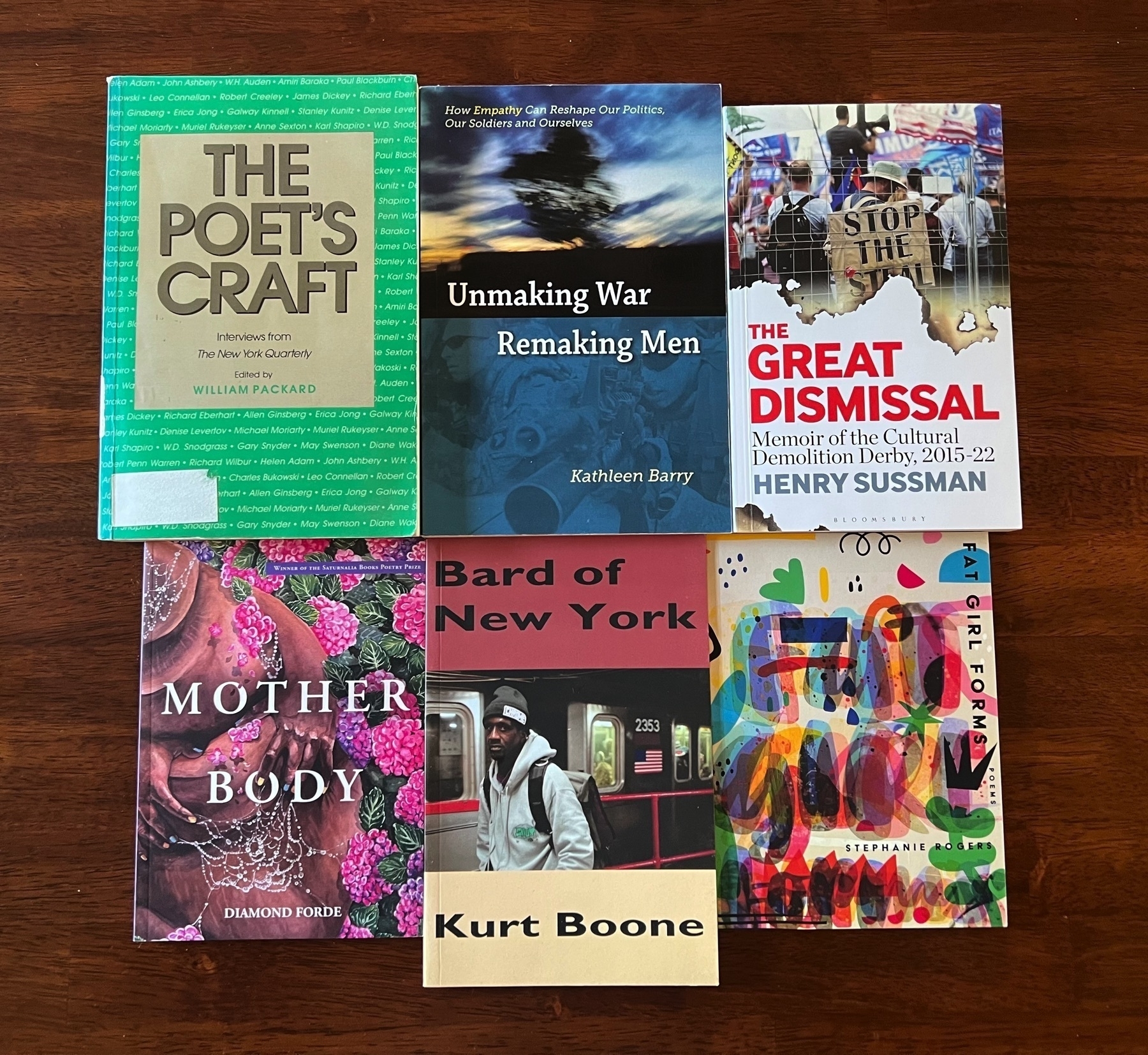
Bookshelf Juxtapositions #147
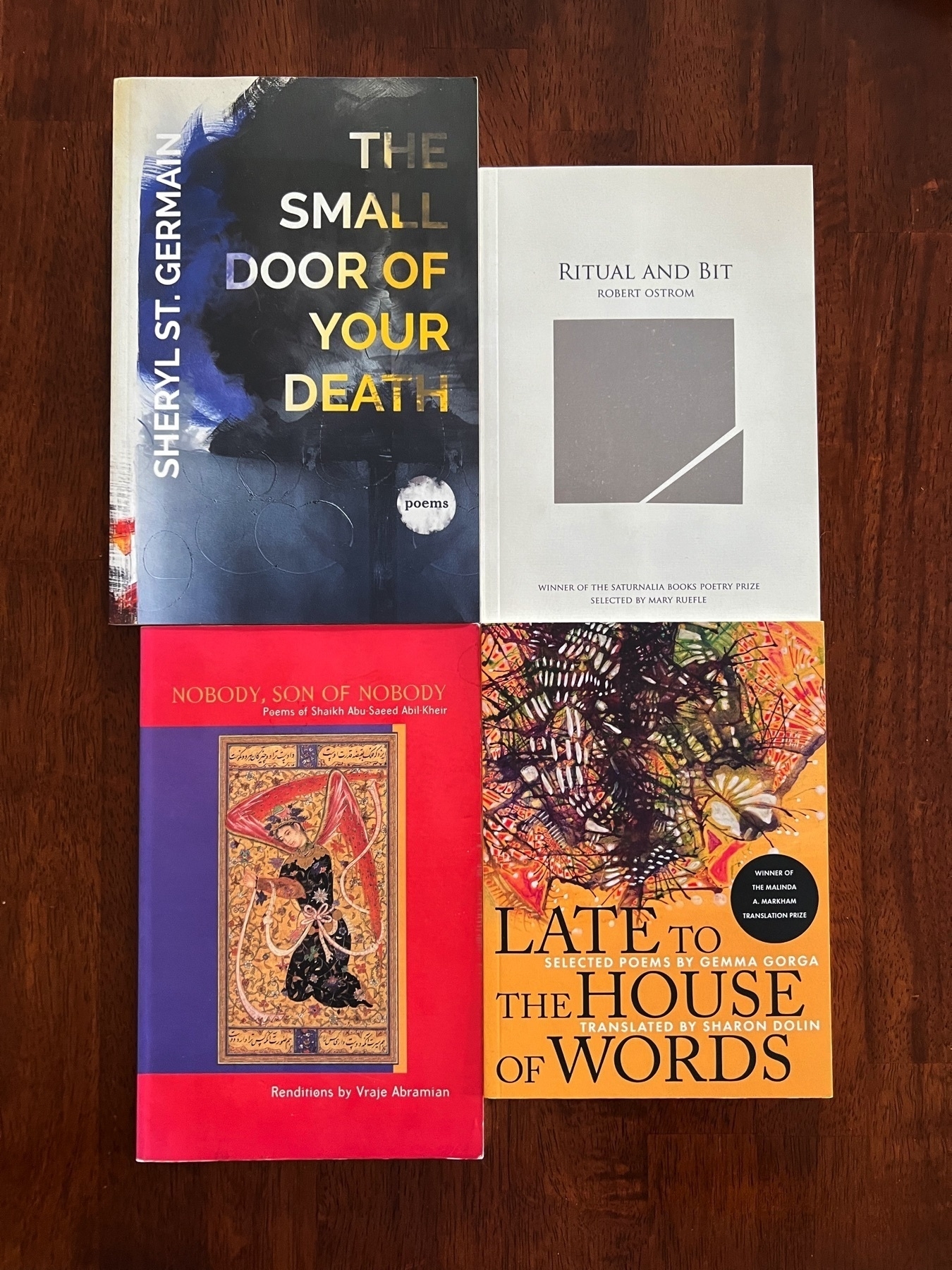
Going through drawers I haven’t been in in a very long time, I found this, drawn by my friend Frank Simone, who died some years ago. It’s dated July 2006 on the back. I knew Frank from the open mic scene in Manhattan in the late 1990s/early 2000s.
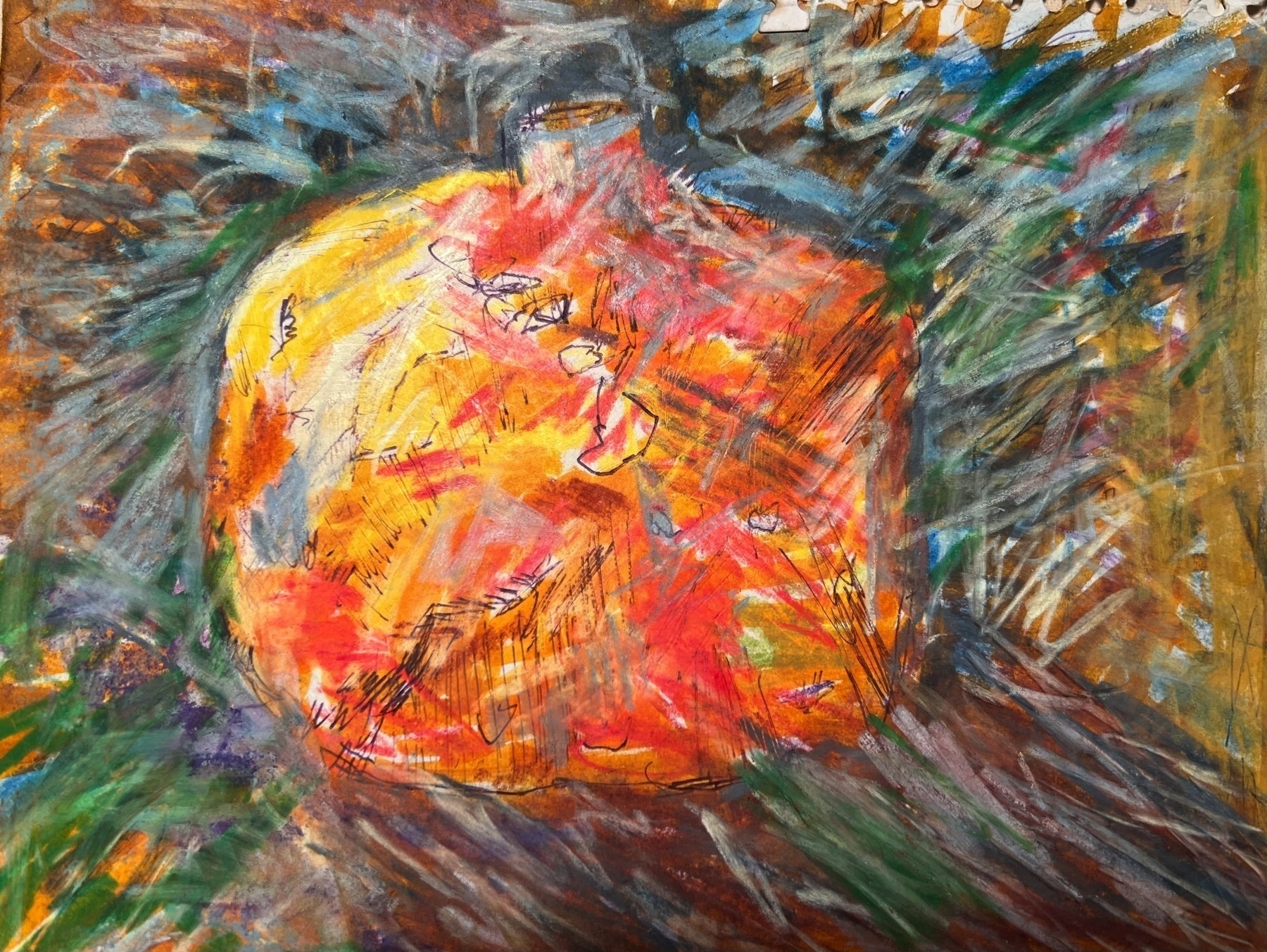
If I believed in a god, I would ask that diety to save me from grading. Just for today. Or maybe this whole week.